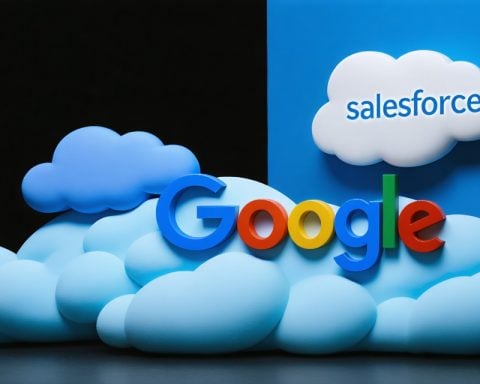The launch of the iPhone 16 has sparked a surprising trend in Hong Kong, where Russian buyers, armed with substantial cash, are eager to buy the latest smartphones. As soon as these coveted devices hit the shelves, the scene outside Hong Kong’s bustling Apple stores became colorful, with Russian enthusiasts ready to offer up to 12% above retail price for the new phones.
Ensuring they don’t miss out, Russians lined up outside the famed International Financial Centre’s Apple Store, eager to acquire as many units as they could. For Nick Alexenkov, a determined Russian buyer, getting a hold of the iPhone 16 in Hong Kong means more than just owning a cutting-edge gadget; it presents an opportunity for profit, given how scarce these phones have become in their home country.
The conflict between Russia and Ukraine has led to sanctions and trade restrictions, complicating technology imports. As a result, Russians face sharply inflated iPhone prices back home. Alexenkov mentioned plans to resell in Russia, where high-demand models like the iPhone 16 Pro Max with 1TB storage can sell for significantly higher than in the U.S. market. For Alexenkov and other opportunistic buyers, Hong Kong’s lack of sales tax adds even more appeal.
This lively market exchange highlights the broader impact of geopolitical tensions on global trade, where tech enthusiasts turn into savvy traders, capitalizing on discrepancies between local markets.
Russian Buyers Turn to Hong Kong for iPhone Resale: Navigating the Global Trade Maze
In an unexpected twist in the world of technology and international trade, the launch of the iPhone 16 has unveiled a fascinating dynamic in the global market. As Russian buyers flood Hong Kong to acquire these coveted devices, this trend offers a lens into the broader implications of geopolitics on commerce and consumer behavior.
The Tech Trade Surge in Hong Kong
Beyond the colorful image of Russians camped outside Apple stores, this situation underscores the adaptability of consumers facing economic sanctions. For many Russians, acquiring tech products like the iPhone 16 in foreign markets is not just about owning a state-of-the-art gadget; it’s a calculated financial strategy. In Hong Kong, where the lack of sales tax makes devices more affordable, Russian buyers seize this opportunity, thereby injecting cash into the local economy and prompting a mini-boom in tourism and retail.
Implications for Local Communities and Businesses
The influx of international buyers in Hong Kong could bring short-term benefits to local businesses through increased sales and an uptick in related services such as accommodation and transport. However, there are potential challenges as well. This surge in demand could lead to stock shortages, driving prices up for local consumers who might not join the global race to scoop up the latest tech goods.
Interesting Dynamics and Controversies
This phenomenon raises several interesting questions and possible controversies:
– How much should local policies accommodate foreign buying sprees?
Governments and businesses may need to balance open commerce with ensuring sufficient supply for native consumers.
– Does this trend inadvertently support grey markets?
While some see it as savvy arbitrage, others argue it fuels unauthorized reselling channels which could undermine official retail efforts in certain regions.
Advantages and Disadvantages
This situation presents a mixed bag of pros and cons:
– Advantages:
– Stimulating local economies with increased sales and tourism.
– Providing consumers in restricted markets access to the latest technologies.
– Highlighting how globalized tech trade can adapt to political barriers, encouraging innovation in logistics and retail strategies.
– Disadvantages:
– Potential for increased retail prices locally due to supply shortages.
– Unintended support for unofficial resale markets.
– Strain on local resources such as store inventories and customer service.
Is this new trend a sustainable solution for technology enthusiasts in sanction-affected countries? While it may currently serve as a workaround, reliance on such practices could lead to more complex regulatory and economic issues as nations grapple with trade restrictions’ unforeseen impacts.
In a world increasingly influenced by geopolitical shifts, these market behaviors highlight the interconnectedness of global commerce and politics. For those interested in exploring further, reliable sources such as the BBC and Reuters offer comprehensive insights into international trade dynamics.
As it stands, the Russian purchase rush in Hong Kong is far more than a simple case of high demand; it exemplifies the intricate interplay between local advantages and global challenges in the face of political turbulence.























